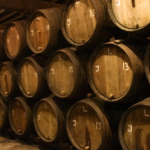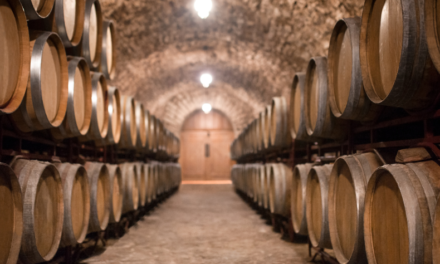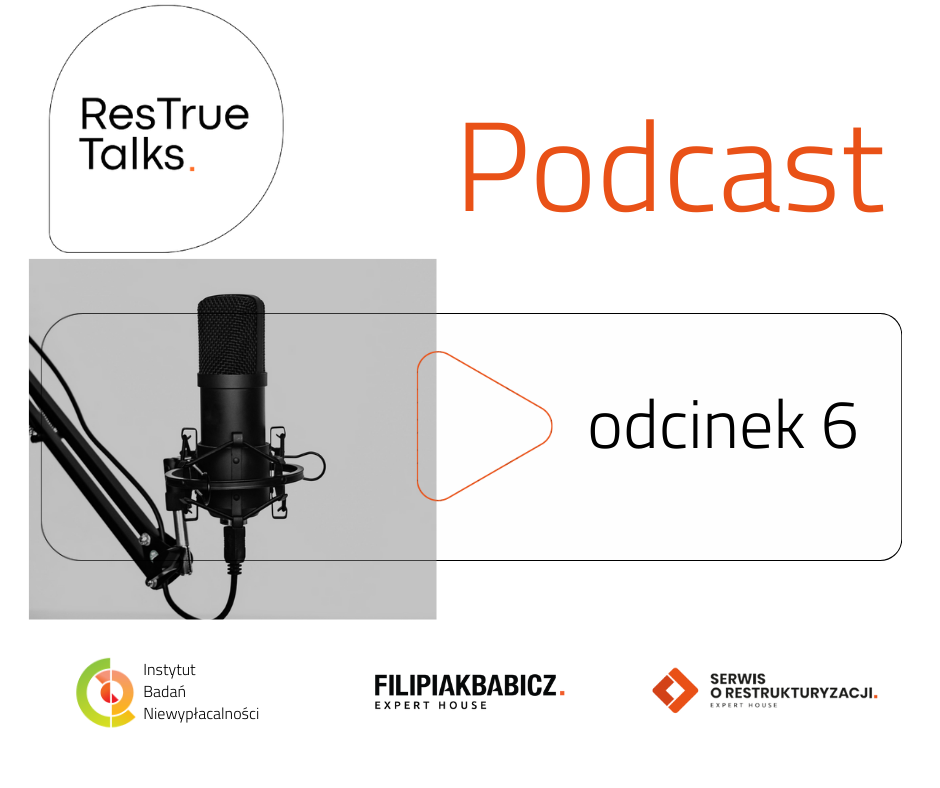
Is the dairy industry facing a wave of consolidation?

In the Polish food sector, especially in the dairy industry, there are conditions that may lead to an intensification of consolidation processes in the near future. Difficult economic environment, which to a varying extent translates into the situation of companies with different scale of operation, may catalyze the concentration of the dairy industry.
Challenges of the dairy industry – rising energy costs and falling prices of milk in the procurement
Recently, there have been more and more problems in the dairy industry, which has suffered as a result of rising production costs and falling milk prices. The increase in the costs of basic activity was mainly caused by the rising prices of feed, which previously was mostly imported from Russia and Ukraine. These countries account for a large share of the grain supply market, and the nervous reaction to the war caused disruptions in supply chains, which in turn translated into higher prices. In addition, high prices of energy resources have significantly increased the costs of breeding and production processes.
An additional challenge faced by the dairy industry results from the lowering of milk prices in purchases, so apart from the cost pressure, we are also dealing with problems on the revenue side. Prices in purchases are constantly falling, this trend has been noticeable more or less since the beginning of the year. In January 2023, the purchase price decreased by approximately 7.8% m/m and was the strongest monthly decline in history. According to the Central Statistical Office, in May this year the price amounted to 206.52/1 hl, ie it was lower by 6.6% compared to the previous year. The downward trend is noticeable not only in Poland, but also around the world. During the pandemic, dairy consumption increased significantly, which translated into an increase in supply and prices. However, after its completion, sales began to fall sharply, mainly due to high dairy prices. Persistent inflation effectively reduced the purchasing power of customers, and retail chains, trying to fight for customers, decided to set lower prices and transfer costs to producers. Small enterprises, unlike industry leaders, do not have the bargaining power to negotiate price conditions directly with retail chains. Hence, it is difficult for them to maintain their current activity during such difficult market conditions.
Rising production costs together with lower milk prices lead to deepening farmers’ losses. Therefore, running small and medium-sized dairies often becomes unprofitable. On the other hand, large, well-established entities are usually better able to stay on the market thanks to the determining role of economies of scale. In addition, industry leaders have the bargaining power to directly negotiate prices with large retail chains. During the meeting of the Minister of Agriculture and Rural Development with representatives of the dairy industry, which took place on February 1, 2023, the situation on the dairy market was discussed. It was emphasized that the biggest challenge in the industry is the relationship with large retail chains, which are not defined as partnerships. In the opinion of producers, retail chains act to the detriment of processors and suppliers, transferring costs to them and reducing the selling prices of products. Hence, negotiations with large entities could strengthen the role of processors in this area and take better care of their interests. The acquisition of smaller entities would also increase production efficiency and international competitiveness of the Polish dairy market.
The industry is increasingly lacking farms that provide milk and raise cattle. Production is phased out because there are often no successors who would take over the family farm – the dairy industry is affected by succession problems, which have also become visible in recent years in other sectors of the economy. In addition, Polish production plants have their markets in distant and demanding destinations, such as China, Saudi Arabia or Japan. Contractors have high requirements that are difficult to meet by smaller Polish dairies. This is due to the lack of well-qualified employees who would be able to improve the products and their quality. On the other hand, large enterprises try to focus on continuous development in the field of technology and allocate a large part of their funds to investments. Therefore, they can meet the requirements of foreign contractors.
Consolidation as an opportunity for the dairy industry? Examples of acquisitions on the Polish market
Strong consolidation trends are already noticeable in the milk processing industry. As shown in the report of Bank Peako “Consolidation of the food industry against the background of the EU” from 2022, at the beginning of the decade the dairy industry was distinguished by a large number of entities (over 200). However, in the years 2010-2021 it decreased by 20-30%. It is estimated that the group of the 40 largest entities is responsible for 78% of the generated revenues in this industry. However, it may turn out that the market is too small for such a large number of enterprises and the strict separation of the largest players will be noticeable. The market concentration index has been constantly increasing in recent years, but its levels still differ from the values of Western European countries. The Polish dairy industry is therefore at a transitional level and is still relatively dispersed.
It is already noticeable that such entities as Mlekovita and Polmlek are leaders in terms of the number of M&A transactions. Analyzing the period from 2003 to 2022, these two companies were responsible for over 20 transactions in total. In recent years, however, consolidation has accelerated significantly and it is worth mentioning a few recent transactions that took place in the dairy industry.
The Mlekovita Group has achieved a leading position in the dairy industry in Central and Eastern Europe, and its strategy is to become a global company. It is therefore open to expansion by increasing the number of cooperatives. It focuses primarily on exporting goods and has enjoyed high revenue growth for years. The turmoil associated with the war in Ukraine did not have a negative impact on the situation of the Mlekovita Group and in 2022 it achieved a record revenue of PLN 9.5 billion. This is almost a 50% increase compared to the previous year. The company’s president himself emphasizes that development would not be possible without investments in technical, technological and product bases. Last year, the company spent about PLN 100 million on investments.
On the other hand, representatives of OSM Czarnków admitted that they had been struggling with serious financial problems for some time. The main reasons for this state of affairs were seen primarily in the increase in gas prices and the decrease in the prices of dairy products. Mlekovita decided to take over the cooperative, which will increase the technological potential and reduce processing costs. As part of the consolidation, two plants will join the Mlekovity Group – OSM in Czarnków and in Chodzież. According to the assurances of the president of Mlekovita, OSM Czarnków products with their current logo and name will remain on the market. So far, they have appeared only on the regional market, but now they will become available throughout Poland. The application to take control was submitted on June 1, 2023 and the case is pending. The planned concentration date is scheduled for the beginning of September.
In its activity report, OSM Końskie drew attention to the growing production costs. The cooperative referred to the economic effects of the war in Ukraine, higher prices of gas, fertilizers and cereals. Therefore, talks were started with the Polmlek Group and it was decided to lease and then purchase the cooperative.
In 2022, the Polmlek Group also became the owner of Ceko and Jagr. As part of its international expansion, it took over a dairy company from Morocco – Safilait. The agreement with OSM Końskie is therefore part of a strategy related to large-scale development. It is worth noting that the Polmlek Group is one of the largest exporters of dairy products. The products go to demanding markets such as Japan, Vietnam or the United Arab Emirates. So it gives potential for further development.
The Jogo cooperative has struggled with financial problems before. At the end of 2020, restructuring activities were undertaken to improve the company’s profitability. It started with reducing the number of employees to increase the efficiency of the plant. An important element of restructuring was also to be the transfer of production to the parent unit in Łódź, which was to reduce operating costs. In addition, unprofitable products were withdrawn, while the production of the most profitable products was increased. However, the restructuring did not bring the expected results. The main problem was still the increase in operating costs. Interestingly, ŁSM Jogo was considered a relatively large and good entity, hence no significant problems were expected. Looking through the prism of this cooperative, it is expected that smaller and weaker entities will be even more unable to cope with the rising costs.
The further deterioration of the situation of the cooperative was prevented by the concentration of two entities and the takeover by Spółdzielnia Mleczarska “Mlekpol” in Grajewo. The assets of the acquired cooperative will be transferred to Mlekpol. The president of the company openly talks about the willingness to take over other entities, if only they show the initiative of development. The consolidation policy in the company itself has been going on since the 1990s. Its goal is primarily to increase the raw material base and to expand the assortment.
Summary
Polish dairies focus on increasing their role by taking over smaller entities both on the domestic and foreign markets. Also in the export context, they are not limited to the European market. They are increasingly entering Asian markets, which can play a key role as business partners. The increasing competitiveness of Polish dairies on a global scale and the growing role of large entities may further favor this trend.
The dynamics of consolidation processes has recently gained momentum, and this is mainly due to the demand from smaller dairies. For well-established entities that have large-scale development inscribed in their strategy, this is an opportunity to quickly and effectively implement new transactions, strengthening their position on the market.
In the past decade, consolidation trends in the dairy industry have been strong in Western Europe. In Poland, the trend of merging entities is also expected to continue due to their relatively high fragmentation. The market of dairy products, where fairly homogeneous products are offered, may turn out to be too small for such a large number of entities. A few leaders in this industry are particularly distinguished, whose revenues are constantly growing and significantly exceed the results of the competition. The Mlekovita Group, Polmlek and Mlekpol SM lead the ranking of the largest dairies in Poland. Therefore, it is expected that in the near future there may be further acquisitions, where the above-mentioned entities will play the main role.













